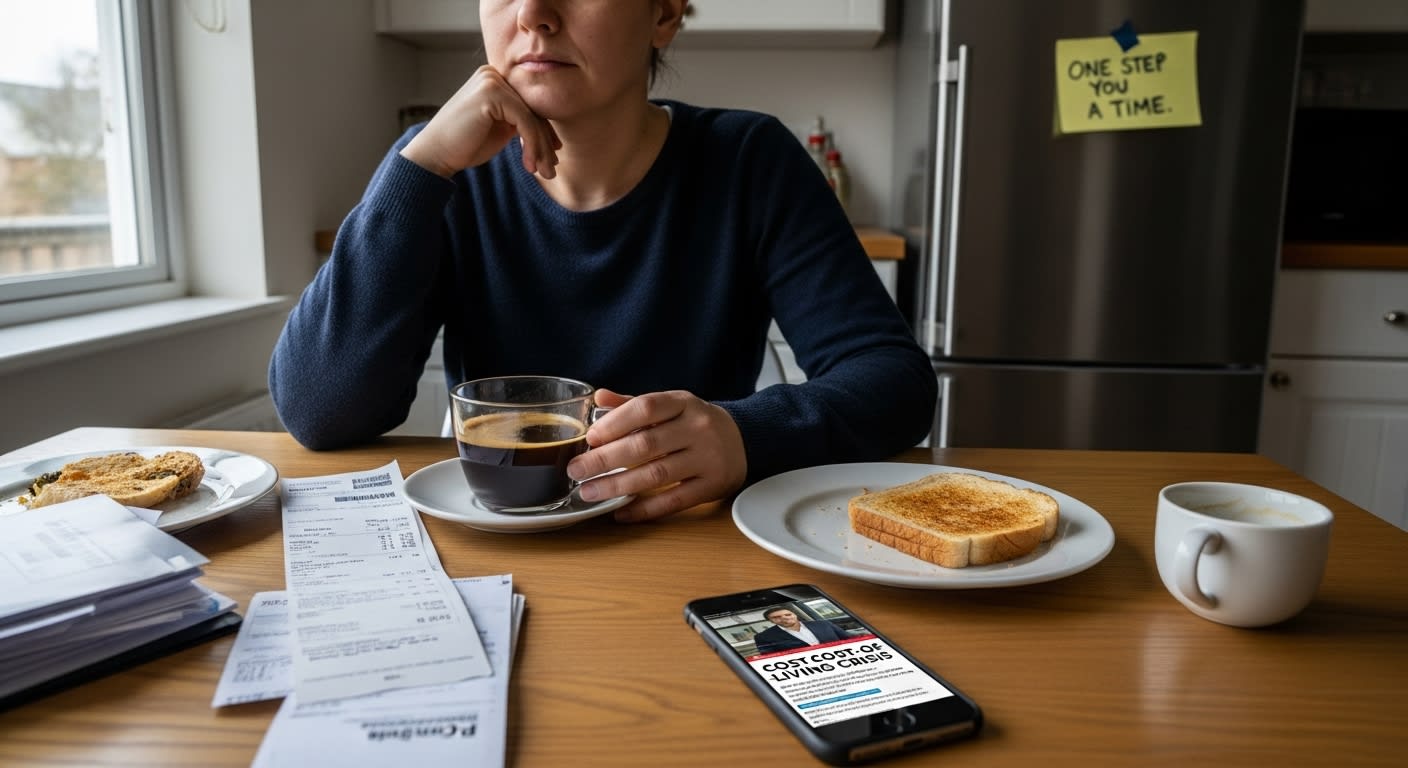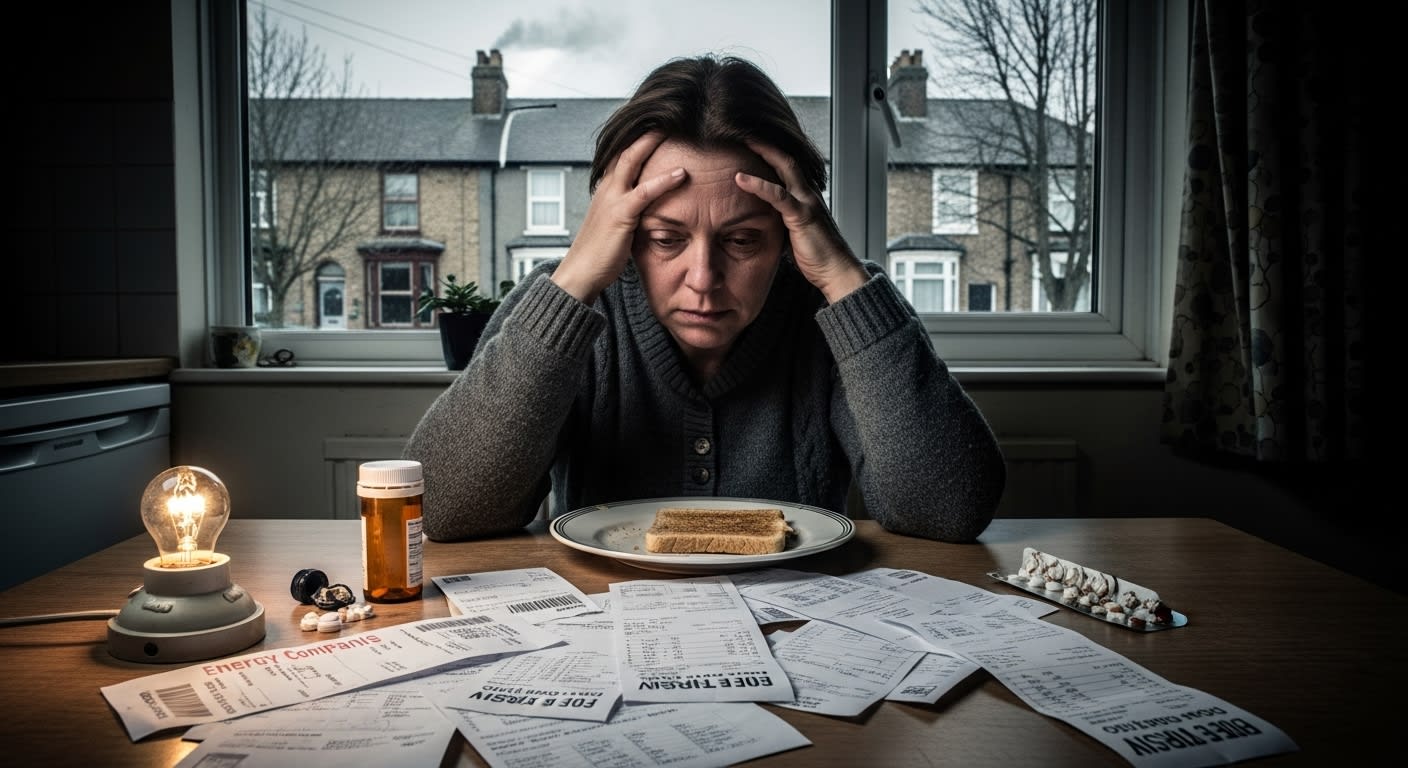
- Call: 01206 913 222
- Mail: transport@qcmhealthcare.co.uk
- Company no:
- 12140857

- MENTAL HEALTH
- Nov 18, 2025
Top 5 Ways to Protect Your Mental Health During a Cost-of-Living Crisis
The cost-of-living crisis continues to affect millions of households across the UK, and unfortunately, the emotional impact grows heavier each day. Because rising bills, increasing food prices, and ongoing financial uncertainty create intense pressure, people are experiencing high levels of stress and anxiety. However, it is still possible to stay mentally strong during these challenging times. With organisations like QCM Healthcare offering compassionate guidance, many individuals are now learning healthier ways to cope. Since the cost-of-living crisis places long-term strain on wellbeing, understanding practical strategies becomes essential for protecting your mental health.
Although financial difficulties may feel overwhelming, there are effective steps you can take to regain a sense of balance. Additionally, using the right approach can prevent worry from escalating into a mental health emergency. Because this crisis affects so many people, you are far from alone. Therefore, adopting simple habits can strengthen your emotional resilience and help you manage stress more effectively. Below are the top 5 ways to protect your mental health during a cost-of-living crisis, supported by professional advice and real-life experiences.
Top 5 Ways to Protect Your Mental Health During a Cost-of-Living Crisis
1. Take Control Through Budgeting and Financial Planning
Understanding your financial situation is one of the most effective ways to reduce stress. When money feels tight, uncertainty often increases anxiety; however, clarity provides control. For this reason, creating a realistic budget supports both financial stability and emotional wellbeing.
Start by taking an honest look at your income, expenses, and debts. Although this process may feel uncomfortable, knowing the truth allows you to make informed decisions. After identifying your essential bills, you can then explore areas where spending can be reduced. This approach helps prevent impulsive purchases and strengthens financial discipline.
Moreover, setting short-term and long-term financial goals gives you something clear to work towards. Whether it is saving for emergencies or reducing debt, goals make budgeting less overwhelming and more achievable. With free tools from charities and financial support organisations, you can track spending and adjust your plan as the cost-of-living crisis changes. By doing so, you build confidence and ease emotional tension.
RECOMMENDED:
Cost-of-Living Crisis in the UK and Its Impact on Health
5 Importance of Family Support During Crisis Recovery
5 Early Signs and Symptoms of Mental Health crisis
2. Strengthen Social Connection and Support Systems
Money problems often feel isolating, yet staying connected is one of the most powerful ways to protect your mental health. When you talk openly to someone you trust, your worries become lighter because you no longer carry them alone. Moreover, supportive conversations help you gain perspective and reduce emotional overload.
If you are in a relationship, honest communication is vital. Using calm language, avoiding blame, and focusing on shared goals can stop financial challenges from damaging your partnership. Additionally, couples who regularly spend quality time together, even through low-cost activities, tend to cope better during financial stress.
For friends and family members, support does not require money. Free activities such as park walks, home-cooked meals, or game nights strengthen bonding without increasing financial strain. Staying socially connected boosts emotional resilience and protects you from feeling trapped by the cost-of-living crisis.
3. Practise Low-Cost Self-Care and Build Healthy Routines
Financial pressure affects the body as much as the mind. Stress can lead to headaches, insomnia, fatigue, and emotional burnout. Nevertheless, you can improve your wellbeing through simple daily habits that cost little or nothing.
Regular movement releases tension and increases serotonin, helping you feel calmer and more energised. Whether you choose walking, stretching, or online home workouts, consistency matters more than intensity. Alongside exercise, good sleep is critical during stressful times. Establishing a routine, such as reducing screen time before bed, helps your mind and body recover.
Eating well is also possible on a limited budget. Planning meals in advance, buying inexpensive staples, and preparing home-cooked dishes allow you to maintain balanced nutrition while saving money. Since physical health influences emotional health, maintaining routine self-care strengthens your ability to cope with the ongoing cost-of-living crisis.
4. Build Psychological Coping Skills for Financial Stress
Although financial difficulty is practical in nature, the emotional response is deeply psychological. Therefore, building mental coping skills can significantly reduce anxiety.
Mindfulness helps you stay grounded instead of spiralling into fear about the future. Simple breathing exercises, gratitude practices, and guided meditations encourage calm thinking and reduce stress. Moreover, understanding your thought patterns allows you to challenge unhelpful beliefs, such as self-blame or catastrophising. When you reframe negative thoughts, you protect your mental wellbeing from the effects of financial uncertainty.
Self-compassion also plays an essential role. Instead of criticising yourself for financial struggles, remind yourself that many people are facing similar challenges. Being kinder to yourself allows your mind to rest rather than panic. With continuous practice, these strategies strengthen resilience throughout the cost-of-living crisis.
5. Know When to Seek Professional Support
Even with strong coping mechanisms, financial stress can sometimes become overwhelming. When anxiety begins interfering with daily activities, professional help becomes essential. Speaking to a GP is a good starting point because they can assess your needs and connect you with mental health services.
Free and low-cost support exists across the UK, including NHS counselling, community wellbeing services, and voluntary organisations. If you ever experience severe distress, crisis hotlines and urgent mental health services are always available. QCM Healthcare remains committed to guiding individuals who are struggling emotionally, particularly during the ongoing cost-of-living crisis. Because support is accessible, no one should ever feel ashamed to ask for help.
Protect Your Mental Health Today
Although the cost-of-living crisis creates daily challenges, you can still protect your mental wellbeing by staying connected, planning carefully, and using effective coping strategies. Because support makes all the difference, organisations like QCM Healthcare continue offering guidance to individuals and families who need compassionate assistance. If you or someone you know is struggling, reach out for help today and take the first step toward emotional stability.
Visit QCM Healthcare to access expert support and begin your journey toward better mental health now.
Frequently Asked Questions
1. How does the cost-of-living crisis affect mental health?
It increases stress, anxiety, and depression because financial uncertainty affects emotional security and daily functioning.
2. What steps reduce money-related anxiety quickly?
Creating a clear budget, discussing worries with someone you trust, and using grounding techniques help relieve immediate stress.
3. How can I budget effectively during financial hardship?
Track all income and expenses, identify essential costs, set achievable goals, and adjust spending using free budgeting tools.
4. What low-cost activities improve mental wellbeing?
Walking, journaling, listening to music, cooking simple meals, and connecting with loved ones all support emotional balance at no cost.
5. When should I seek professional help?
If financial stress affects sleep, daily functioning, or emotional stability, contact a GP or mental health provider immediately.


Comments (0)
No approved comments yet.